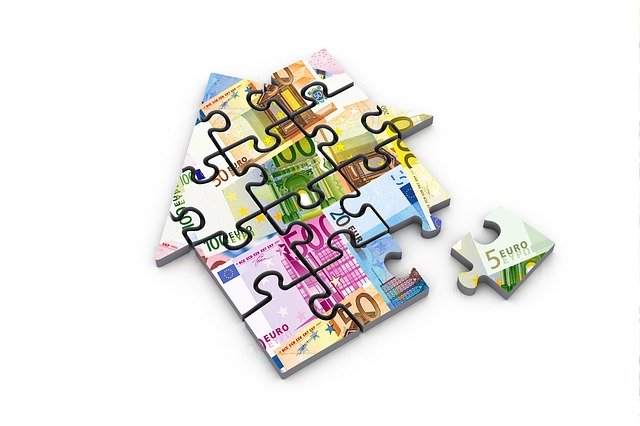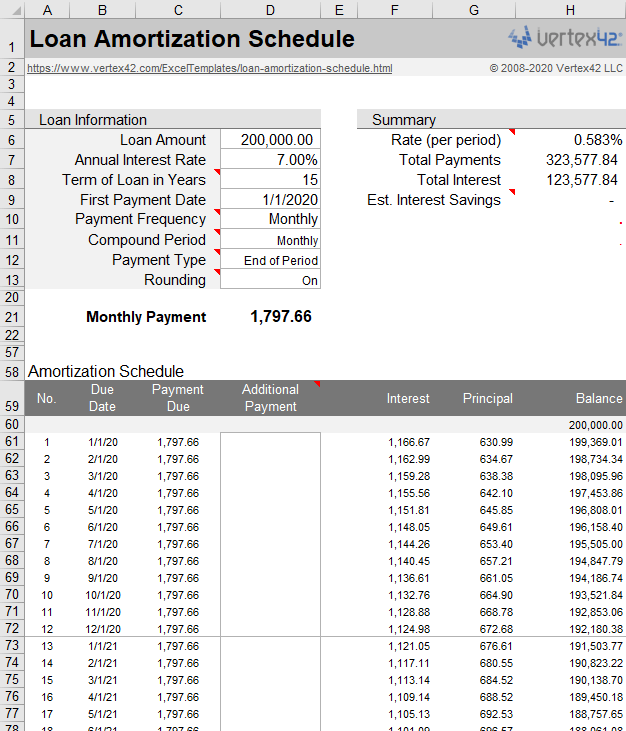
Make sure you understand what you are getting into before you sign any loan estimates. Know that not all loans have the same interest rate cap. You should also look out for lifetime caps. You will find information about your lender and loan officers on the next page. The final page will contain the total cost of your loan over five years.
Page one
A loan estimation is a concise summary of all the costs associated with buying a house. It provides details about the loan terms and interest rate as well as closing costs, taxes, and fees. It also contains the contact information of the lender. When comparing loans from different lenders, the Loan Estimate can be very helpful.
Page two
A loan estimate is an important document that provides details about your loan. It also contains information about the monthly payments and expenses. The first page of the loan estimate should contain the applicant's name and address, the price of the property, and the amount of the loan. All of these numbers should be verified by the lender. It should also contain the contact information and name of your mortgage broker. The place you will sign the loan estimation should be the last page.
Page three
The loan estimate will list the total interest, payments, and prepaid charges for the loan. These fees will be listed in the closing disclosure. They are important to know before you sign. You will see the loan estimate and compare it to the final amount.

Page four
The loan estimate details your monthly payments and other costs. It usually only has three pages, with the first page summarizing the loan terms. The second page provides details on the closing costs. The third page details the loan amount as well as its interest rate. The fourth page includes a breakdown of the mortgage payment, which includes taxes. Additionally, the loan estimate includes any prepayment penalties.
Page five
The loan estimate provides important information about the loan. The loan estimate will tell you how much your loan will pay off over five years, how much insurance you will need to cover it, and other details. It will also include the total interest you will pay over the life of the loan. The total interest percentage is determined by the amount that you borrowed. Be sure to read it.
Page six
A loan estimate is an important document that details the costs and repayments associated with a loan. The loan estimate's initial page contains some essential information like the applicant's address, name and property value. These details must be matched to the loan amount requested.
Page seven
A loan estimate is an important document that details the terms, costs, and payments associated with a loan. It should include information about the applicant such as their name, address, property price, and loan amount. Verify that the loan estimate is accurate to the real property price.
Page eight
One of the most important pages of the loan estimate is the breakdown of costs and expenses. This document contains information that will help homebuyers to understand the true cost of a loan. This estimate will make it easier to compare and save time.

Page nine
The loan estimate is a vital document that lists the costs and monthly payments for a loan. It should include the applicant's address and the amount of the property being sold. It should include, if applicable, the loan terms and the purpose of loan.
Page ten
A Loan Estimate, also known as a Loan Estimate (LE), is a document which outlines the cost of a loan. It also includes information about closing costs, tax and government fees. It also includes the contact information of your lender. This document is a useful tool for comparison-shopping.
FAQ
How much money do I need to purchase my home?
The number of days your home has been on market and its condition can have an impact on how much it sells. Zillow.com reports that the average selling price of a US home is $203,000. This
What should you look out for when investing in real-estate?
The first thing to do is ensure you have enough money to invest in real estate. If you don’t save enough money, you will have to borrow money at a bank. It is important to avoid getting into debt as you may not be able pay the loan back if you default.
You must also be clear about how much you have to spend on your investment property each monthly. This amount must include all expenses associated with owning the property such as mortgage payments, insurance, maintenance, and taxes.
You must also ensure that your investment property is secure. You would be better off if you moved to another area while looking at properties.
What are the drawbacks of a fixed rate mortgage?
Fixed-rate loans are more expensive than adjustable-rate mortgages because they have higher initial costs. A steep loss could also occur if you sell your home before the term ends due to the difference in the sale price and outstanding balance.
Statistics
- Private mortgage insurance may be required for conventional loans when the borrower puts less than 20% down.4 FHA loans are mortgage loans issued by private lenders and backed by the federal government. (investopedia.com)
- Based on your credit scores and other financial details, your lender offers you a 3.5% interest rate on loan. (investopedia.com)
- Some experts hypothesize that rates will hit five percent by the second half of 2018, but there has been no official confirmation one way or the other. (fortunebuilders.com)
- It's possible to get approved for an FHA loan with a credit score as low as 580 and a down payment of 3.5% or a credit score as low as 500 and a 10% down payment.5 Specialty mortgage loans are loans that don't fit into the conventional or FHA loan categories. (investopedia.com)
- When it came to buying a home in 2015, experts predicted that mortgage rates would surpass five percent, yet interest rates remained below four percent. (fortunebuilders.com)
External Links
How To
How to manage a rental property
You can rent out your home to make extra cash, but you need to be careful. We'll show you what to consider when deciding whether to rent your home and give you tips on managing a rental property.
If you're considering renting out your home, here's everything you need to know to start.
-
What factors should I first consider? You need to assess your finances before renting out your home. You may not be financially able to rent out your house to someone else if you have credit card debts or mortgage payments. Your budget should be reviewed - you may not have enough money to cover your monthly expenses like rent, utilities, insurance, and so on. ), it might not be worth it.
-
How much does it cost for me to rent my house? It is possible to charge a higher price for renting your house if you consider many factors. These factors include location, size, condition, features, season, and so forth. Prices vary depending on where you live so it's important that you don't expect the same rates everywhere. Rightmove shows that the median market price for renting one-bedroom flats in London is approximately PS1,400 per months. This would translate into a total of PS2,800 per calendar year if you rented your entire home. This is a good amount, but you might make significantly less if you let only a portion of your home.
-
Is this worth it? Doing something new always comes with risks, but if it brings in extra income, why wouldn't you try it? Before you sign anything, though, make sure you understand exactly what you're getting yourself into. It's not enough to be able to spend more time with your loved ones. You'll need to manage maintenance costs, repair and clean up the house. Before you sign up, make sure to thoroughly consider all of these points.
-
Are there benefits? There are benefits to renting your home. There are many reasons to rent your home. You can use it to pay off debt, buy a holiday, save for a rainy-day, or simply to have a break. It's more fun than working every day, regardless of what you choose. And if you plan ahead, you could even turn to rent into a full-time job.
-
How can I find tenants After you have decided to rent your property, you will need to properly advertise it. Start by listing online using websites like Zoopla and Rightmove. After potential tenants have contacted you, arrange an interview. This will enable you to evaluate their suitability and verify that they are financially stable enough for you to rent your home.
-
How do I ensure I am covered? If you don't want to leave your home empty, make sure that you have insurance against fire, theft and damage. Your landlord will require you to insure your house. You can also do this directly with an insurance company. Your landlord will often require you to add them to your policy as an additional insured. This means that they'll pay for damages to your property while you're not there. This doesn't apply to if you live abroad or if the landlord isn’t registered with UK insurances. In these cases, you'll need an international insurer to register.
-
It's easy to feel that you don't have the time or money to look for tenants. This is especially true if you work from home. It's important to advertise your property with the best possible attitude. You should create a professional-looking website and post ads online, including in local newspapers and magazines. It is also necessary to create a complete application form and give references. While some people prefer to handle everything themselves, others hire agents who can take care of most of the legwork. You'll need to be ready to answer questions during interviews.
-
What happens after I find my tenant?After you've found a suitable tenant, you'll need to agree on terms. If you have a current lease in place you'll need inform your tenant about changes, such moving dates. You may also negotiate terms such as length of stay and deposit. While you might get paid when the tenancy is over, utilities are still a cost that must be paid.
-
How do I collect my rent? You will need to verify that your tenant has actually paid the rent when it comes time to collect it. If they haven't, remind them. Before you send them a final invoice, you can deduct any outstanding rent payments. If you are having difficulty finding your tenant, you can always contact the police. They will not normally expel someone unless there has been a breach of contract. However, they can issue warrants if necessary.
-
What can I do to avoid problems? Renting out your house can make you a lot of money, but it's also important to stay safe. You should install smoke alarms and carbon Monoxide detectors. Security cameras are also a good idea. Make sure your neighbors have given you permission to leave your property unlocked overnight and that you have enough insurance. You must also make sure that strangers are not allowed to enter your house, even when they claim they're moving in the next door.